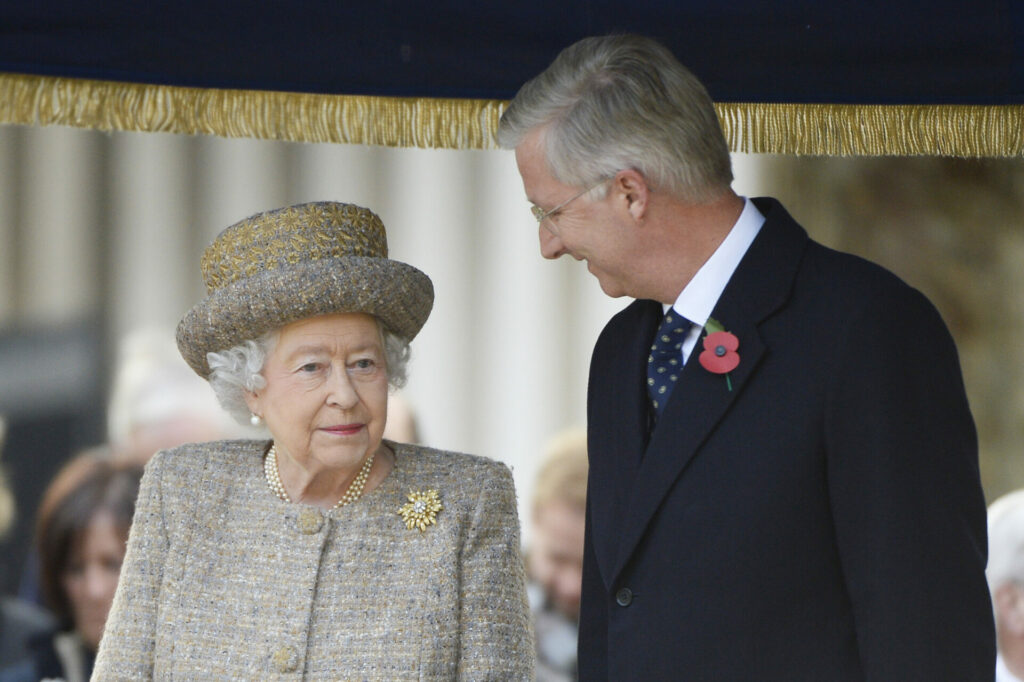As an enormous crowd builds outside Buckingham Palace with crowds applauding and cheering the reign of Her Majesty Queen Elizabeth II, international leaders have begun to send their condolences and tributes to the deceased British monarch.
Queen Elizabeth was the United Kingdom’s longest-serving monarch and the second longest-serving monarch in history. During her time on the throne, the Queen witnessed 15 Prime Ministers, the decolonisation of her empire, the UK’s accession to the European Communities, and later its withdrawal from the European Union.
As Queen, Elizabeth visited 110 countries, maintaining cordial relations with members of Britain’s former empire as well as other nations across the globe. Upon the announcement of the death of Queen Elizabeth II, world leaders have paid tribute to her commitment to the Commonwealth and to international cooperation.
Benelux
Alexander De Croo – Prime Minister of Belgium
Alexander De Croo paid his respects to the British monarch, calling her a "beacon of stability an dignity" for people in Britain. Queen Elizabeth II last made an official state visit to Belgium in 2007 and attended a WW1 memorial service in Ypres as well as visiting Brussels, Laeken, and Wavre.
Belgium sends its condolences to the British @RoyalFamily and to the British people. May HRH Queen Elizabeth II Rest In Peace. For over 70 years, she was a beacon of stability and dignity for the British people. pic.twitter.com/PhhMml3Rur
— Alexander De Croo 🇧🇪🇪🇺 (@alexanderdecroo) September 8, 2022
King Phillipe and Queen Mathilde – Royal Family of Belgium
In a message posted on the official Twitter profile of the Belgian Royal Palace, Phillipe and Mathilde hailed Queen Elizabeth II's "extraordinary personality" and "dignity, courage, and devotion."
The British monarchy has a shared history with the Belgian Royal Family. While descended from different royal houses, Belgian King Philippe and Queen Elizabeth II are related by blood, sharing a common ancestor of Franz, the Duke of Saxe-Coburg-Saalfeld.
Message by King Philippe and Queen Mathilde on the passing of Queen Elizabeth II: pic.twitter.com/NTuOzedyc5
— Belgian Royal Palace (@MonarchieBe) September 8, 2022
King William-Alexander, Queen Máxima, Princess Beatrix – Royal Family of the Netherlands
The Dutch Royal Family, which has long enjoyed a close relationship with the British monarchy, expressed grief at the passing of Queen Elizabeth II. In an official statement from the Dutch Royal House, Dutch royals spoke of their "deep respect and great affection" for Queen Elizabeth II.
"Steadfast and wise, she dedicated her long life to serving the British people. We feel a strong bond with the United Kingdom and its royal family, and we share their sorrow at this time. We are very grateful for our countries' close friendship, to which Queen Elizabeth made such an unforgettable contribution," the statement reads.
Reactie van Koning Willem-Alexander, Koningin Máxima en Prinses Beatrix op het overlijden van Koningin Elizabeth II:https://t.co/ROpxQ4CYut pic.twitter.com/GeVc7bOGHM
— Koninklijk Huis (@koninklijkhuis) September 8, 2022
Henri, Grand Duke of Luxembourg – Monarch of Luxembourg
The Grand Duchy of Luxembourg, a small and often overlooked Kingdom on Belgium's southern border, maintained close ties with the British crown. On the death of Henri's father Jean, Queen Elizabeth II wrote to the Duke of her "fond memories" of Henri, who joined the British Army during the Second World War.
LL.AA.RR. sont profondément émus et attristés par la nouvelle du décès de S.M. la Reine Elisabeth II, une monarque profondément attachée à l’amitié entre nos deux pays. S.A.R. le Grand-Duc adressera un message de condoléances au nom du peuple 🇱🇺 à la Famille royale britannique. pic.twitter.com/sS2pM5HlWj
— Cour Grand-Ducale (@CourGrandDucale) September 8, 2022
Translation: Their Royal Highnesses are deeply moved by the news of the death of HM Queen Elizabeth II, a monarch deeply attached to the friendship between our two countries. HRH the Grand Duke will send a message of condolence on behalf of the people of Luxembourg to the British Royal Family.
United Kingdom and Commonwealth
His Majesty King Charles III – Monarch of the United Kingdom
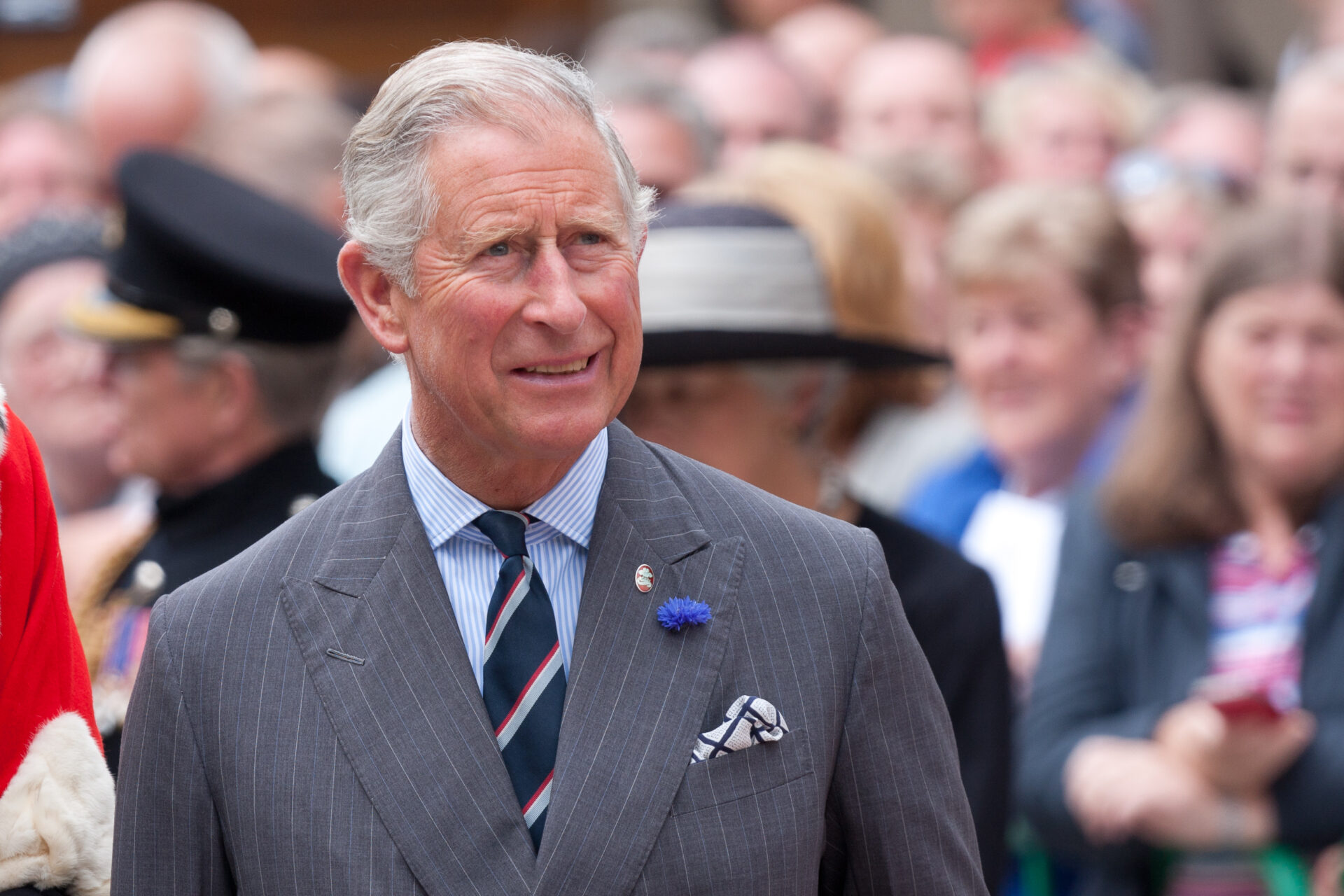
King Charles III, pictured in Jersey in 2012. Credit: Dan Marsh/Wikimedia Commons
On the same afternoon that the United Kingdom lost a Queen, it gained a King. With his mother passing away, the heir apparent automatically inherited the Queen's titles. Charles has asked to be called King Charles III.
In a royal statement, the new King paid tribute to his mother and thanked the public for their sympathies: "The death of my beloved mother, Her Majesty The Queen, is a moment of the greatest sadness for me and all members of my family. We mourn profoundly the passing of a cherished sovereign and a much-loved mother. I know her loss will be deeply felt throughout the country, the Realms and the Commonwealth, and by countless people around the world."
Liz Truss – Prime Minister of the United Kingdom
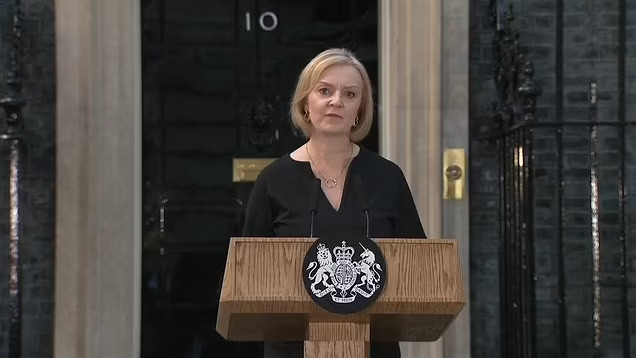
Credit: Number 10 Downing Street
In only her second address in her role as newly-appointed Prime Minister, Liz Truss appeared before No.10 Downing Street to present the government's official remarks on the passing of Britain's longest monarch.
"Queen Elizabeth II was the rock on which modern Britain was built. Our country has grown and flourished under her reign," Truss told the press.
For most Britons, Queen Elizabeth II was the only monarch they had ever known. She witnessed radical changes in the make-up of the United Kingdom.
"Through thick and thin, Queen Elizabeth II provided us with the stability and the strength that we needed. She was the very spirit of Great Britain – and that spirit will endure."
Truss hailed the reign of King Charles III, closing with: "God save the King".
Boris Johnson – Former Prime Minister and MP for Uxbridge and South Ruislip
Just two days before the death of the Queen, Boris Johnson was at Balmoral Castle, asking the Queen to accept his resignation as Prime Minister, following the nomination of Liz Truss by Conservative Party members.
Johnson was forced to apologise to the Queen for his role in Downing Street parties, which took place during Covid-19 lockdowns. Nonetheless, Johnson and his family enjoyed a mostly positive relationship with the Queen, accompanying the monarch to her Balmoral residence for a traditional private holiday.
Statement on the death of Her Majesty Queen Elizabeth II (2/3) pic.twitter.com/e1urjObgld
— Boris Johnson (@BorisJohnson) September 8, 2022
Nicola Sturgeon – First Minister of Scotland
While Scotland's position within the Union has been tenuous in recent years, the Queen had a lifelong connection to Scotland, passing her summers at her royal estate in Balmoral, near Aberdeen, where she died.
Sturgeon called the Queen's passing a "profoundly sad moment" and thanked the monarch for her service.
The death of Her Majesty, Queen Elizabeth is a profoundly sad moment for the UK, the Commonwealth and the world. Her life was one of extraordinary dedication and service. On behalf of the people of Scotland, I convey my deepest condolences to The King and the Royal Family. https://t.co/o2XqGJMF2S
— Nicola Sturgeon (@NicolaSturgeon) September 8, 2022
Justin Trudeau – Prime Minister of Canada
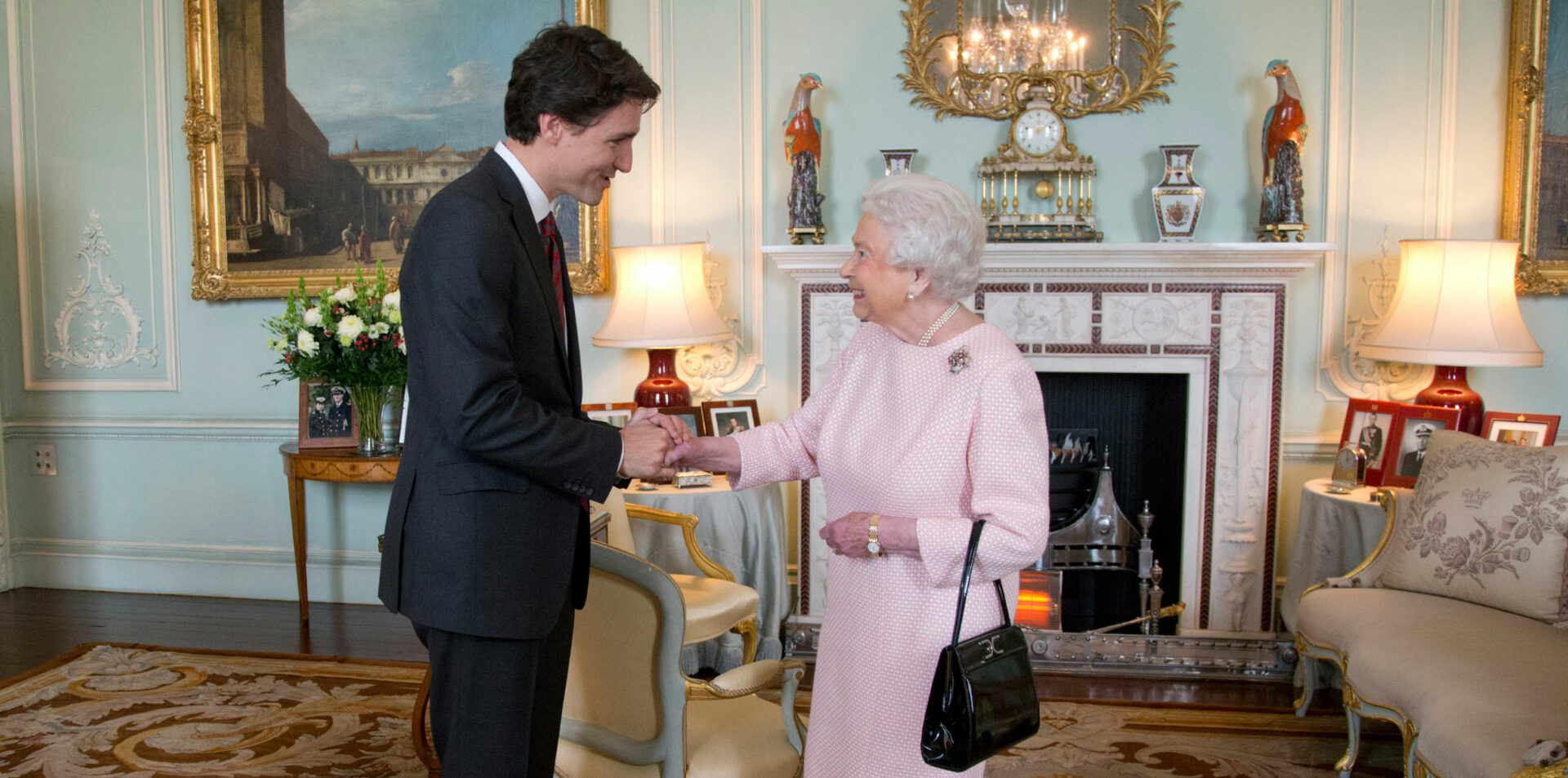
Credit: Royal.uk
Appearing dressed in black at a press conference in Vancouver, Justin Trudeau delivered a televised address to Canadians, commemorating the death of their head of state.
"She was our Queen for almost half of Canada's existence," he told the Canadian press. "She had an obvious, deep, and abiding love and affection for Canadians."
"She served us all with strength and wisdom for 70 years... As her 12th Canadian Prime Minister, I'm having trouble believing that my last sit-down with her was my last."
Anthony Albanese – Prime Minister of Australia
In 1999, Australia went to the polls to decide whether Australia should become a republic, abandoning the monarchy and Queen Elizabeth II as its head of state. The referendum was soundly defeated, and the monarchy kept strong links with Australia.
During her famous first trip to the country in 1954, the Queen toured the country by air and by road, taking 207 trips by car and by appointed royal trains. So thorough was her state visit, that it is estimated that as much as 75% of Australia's population saw the Queen and her husband.
In an official statement, Albanese offered his "deepest condolences" and quoted the Queen's famous statement: "Grief is the price we pay for love."
Narendra Modi – Prime Minister of India
India is the largest member of the Commonwealth, a political association of former territories of the British Empire. India has a long and troubled history with the British Empire, which remained under the direct rule of the crown for nearly 90 years. Despite this, the Queen fostered close ties with India during its development into a modern nation.
Queen Elizabeth II first visited India nearly 15 years after India's independence from the British Empire. She visited the Taj Mahal and attended grand Republic Day celebrations at Rajpath in New Delhi.
In a post on Twitter, Indian leader Modi described the Queen as a "stalwart of our times", who "personified dignity and decency in public life."
Her Majesty Queen Elizabeth II will be remembered as a stalwart of our times. She provided inspiring leadership to her nation and people. She personified dignity and decency in public life. Pained by her demise. My thoughts are with her family and people of UK in this sad hour.
— Narendra Modi (@narendramodi) September 8, 2022
World
Joseph Biden – President of the United States of America
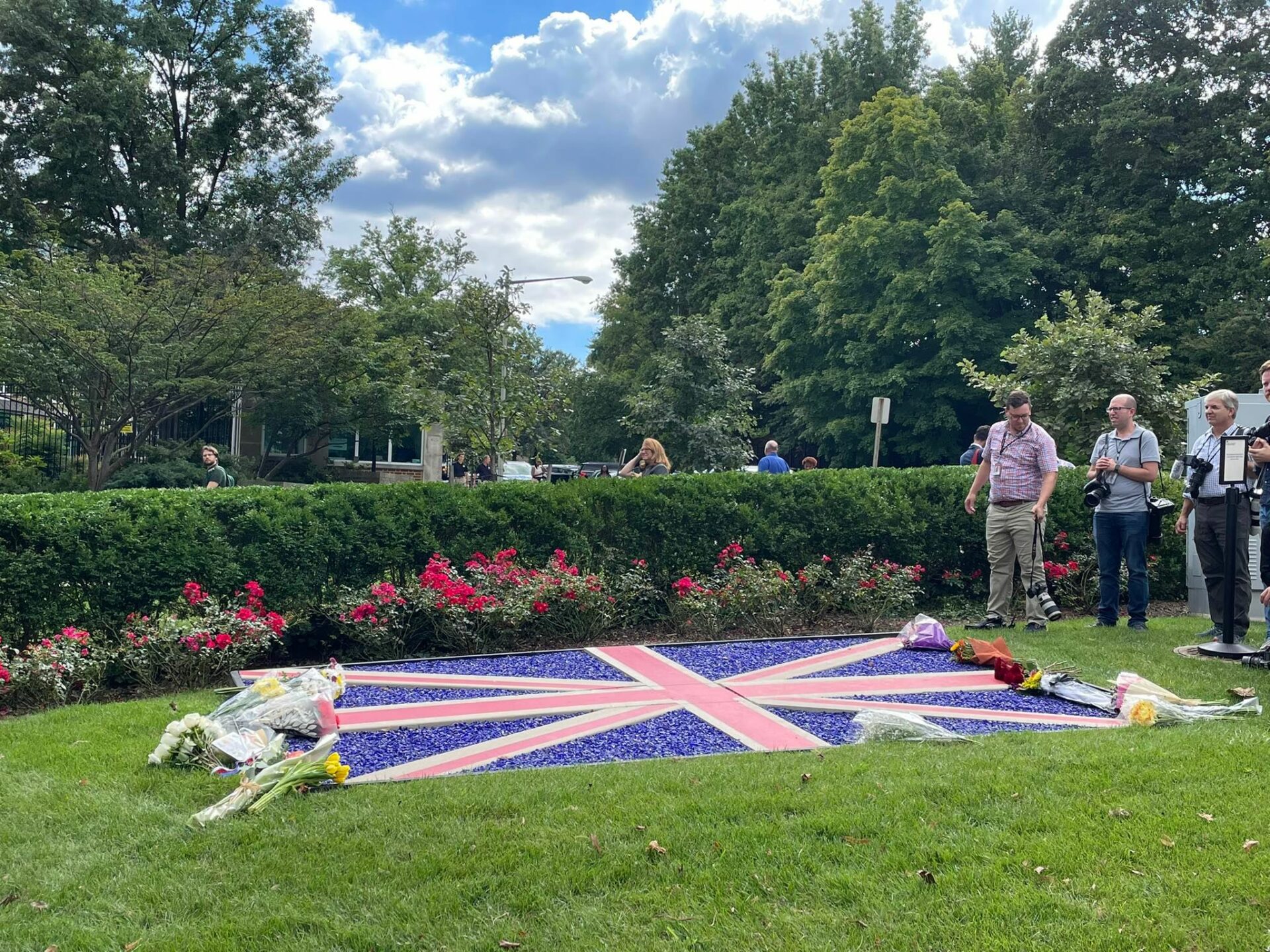
Mourners leave flowers outside the British Embassy in Washington DC. Credit: Ekaterina Shengeliya
Biden is expected to visit the British embassy on 9 September to sign a book of condolences to the British monarch.
During her reign, the Queen met with 13 of the last 14 US Presidents, having tea with President Biden at Windsor Castle last year. The Queen was known to have a warm relationship with the Obamas.
In an official statement published by Joe Biden and his wife Jill, the US President expressed his admiration for the monarch, noting that "she was the first British monarch to whom people all around the world could feel a personal and immediate connection."
"Queen Elizabeth II was a stateswoman of unmatched dignity and constancy who deepened the bedrock Alliance between the United Kingdom and the United States. She help make our relationship special," the Biden family noted.
The U.S President and First Lady shared their prayers with Britons and state that they "look forward to continuing a close friendship with the King and the Queen Consort."
Our statement on the death of Queen Elizabeth II. pic.twitter.com/0n7pmVVg2w
— President Biden (@POTUS) September 8, 2022
Micheál Martin – Taoiseach of Ireland
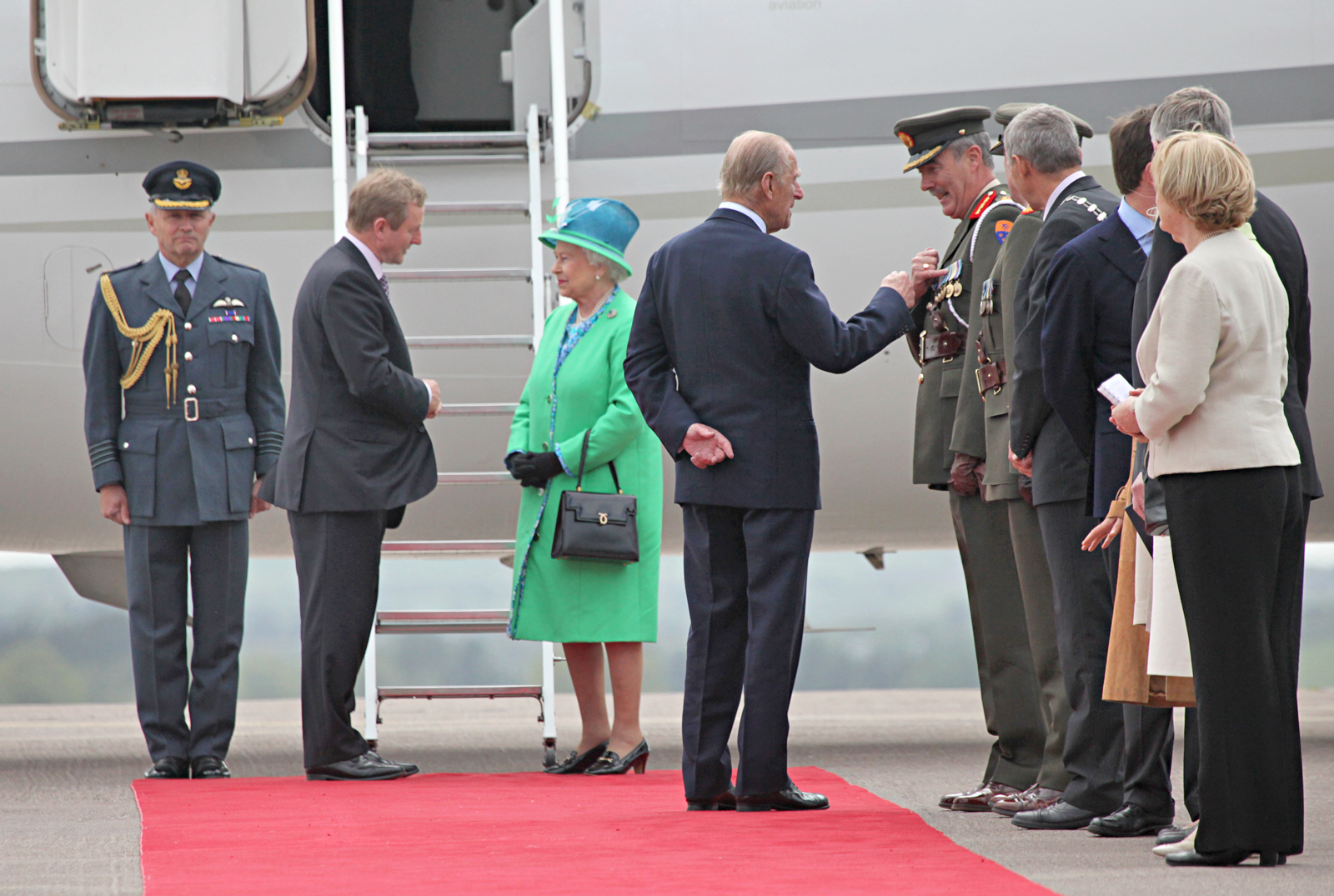
Queen Elizabeth II during her state visit to Ireland in 2011. Credit: Óglaigh na hÉireann
In 2011, the British monarch's trip to the Republic of Ireland was a monumental moment in the history of British-Irish relations, damaged by decades of war and "troubles."
The year following, the Queen visited Northern Ireland and even shook hands with former Irish Republican Army (IRA) commander and then First Minister, Martin McGuinness. The IRA had been responsible for the death of Earl Louis Mountbatten, the maternal uncle of the Queen's husband Prince Phillip.
The Queen strived to build positive relations across political and religious divides in Ireland, partly helping to normalise relations between Ireland and the UK following the turbulent 90s.
In an official statement, Irish Taoiseach Micheál Martin spoke of the Queen's "popularity with the Irish people" and praised "an exceptional woman who led by quiet and dignified example and who touched so many lives over her exceptionally long reign."
The Taoiseach concluded his statement with "Ar dheis Dé go raibh a hanam dílis", a traditional Irish saying meaning "may his holy soul be on the right side of God."
Emmanuel Macron – President of France
Queen Elizabeth II last visited France in 2014 to mark the 70th anniversary of the D-Day landings, when allied forces liberated France from Nazi-German occupation. She praised the "beautiful country" and her "own great affection for the French people."
The Queen first won the hearts of the French in 1948, when the then 22-year-old Princess travelled to Paris, delivering a speech in fluent French and receiving the Legion of Honour.
In an official statement, Macron praised her role in solidifying unity between the two nations and praised the "lasting impression" she had left on "her country and her century."
Her Majesty Queen Elizabeth II embodied the British nation’s continuity and unity for over 70 years. I remember her as a friend of France, a kind-hearted queen who has left a lasting impression on her country and her century.
— Emmanuel Macron (@EmmanuelMacron) September 8, 2022
Olaf Scholz – Chancellor of Germany
During her long reign, Germany transitioned from a fascist totalitarian state, to a nation divided east and west, to a unified and democratic member of the European Communities.
She first visited West Germany in 1965 and later returned in 1990 to a freshly unified German Federal Republic. The Queen always maintained a fondness for the country, partly owing to her own family's German roots.
In fact, the country received the last official state visit from the Queen in her lifetime, with the monarch visiting Germany in 2015. During a speech at a state dinner at the Bellevue Palace in Berlin, she warned of the dangers of "division in Europe" between east and west.
In an official statement, the German head of state described the Queen as a "role model" who had made efforts to reconcile Britain and Germany following the Second World War.
We mourn the death of Queen Elizabeth II. She was a role model and inspiration for millions, also here in Germany. Her commitment to German-British reconciliation after the horrors of World War II will remain unforgotten. She will be missed, not least her wonderful humour.
— Bundeskanzler Olaf Scholz (@Bundeskanzler) September 8, 2022

